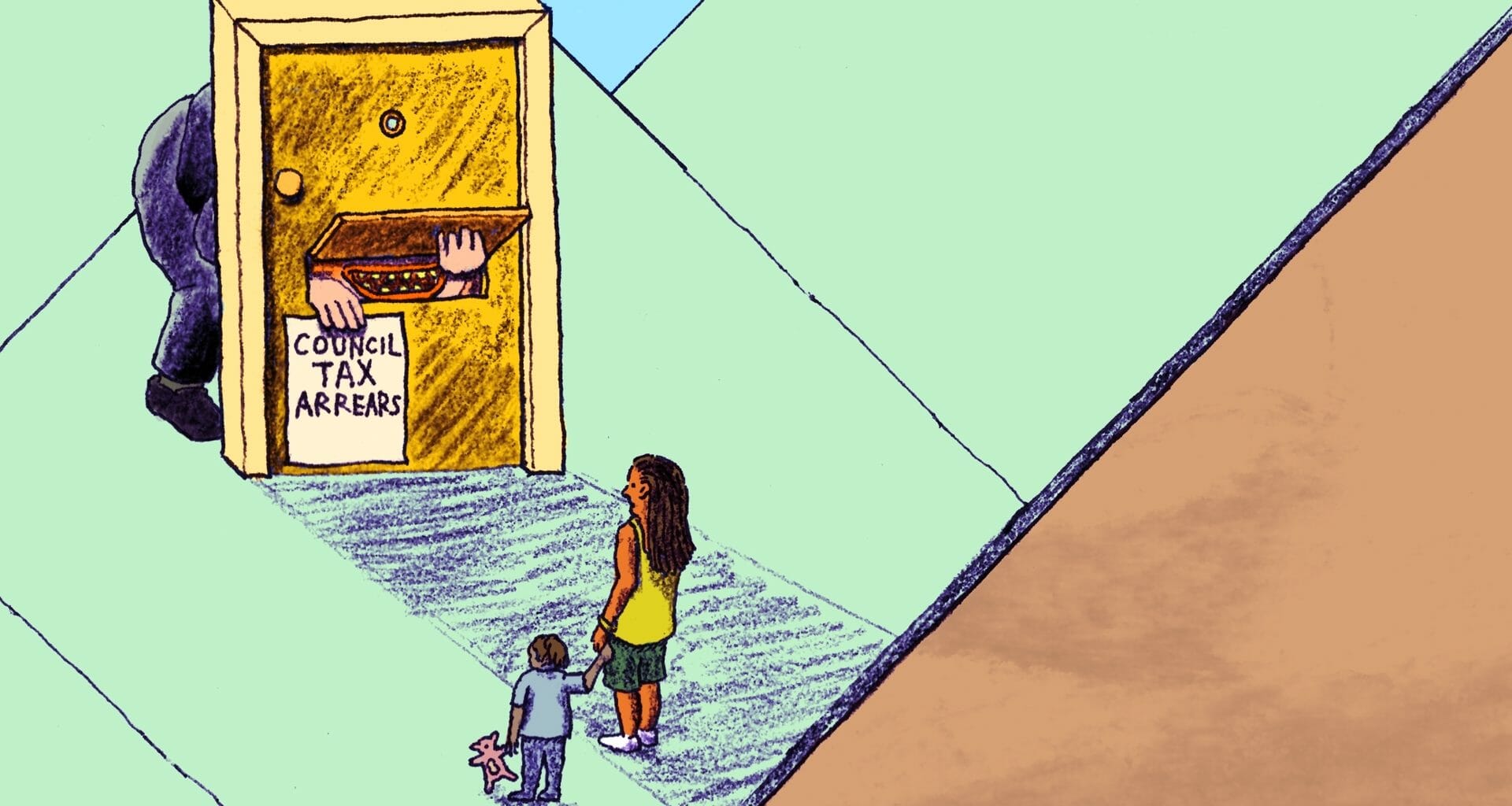
Local authorities have been accused of issuing “escalating threats” to people behind on their council tax, after The Ferret found they have contracts worth up to £20m with debt collectors.
Some charities now consider council tax to be the number one debt problem for people across the country, mainly because the penalties for not paying it are so high.
In total, 24 of Scotland’s 32 councils had ongoing contracts with at least one debt collection firm. These contracts could end up costing councils £20,266,884.
Charities argue that the “quicker and harsher consequences” for non-payment of council tax compared with other bills are causing “ongoing stress and anxiety” for clients.
If a payment is missed a letter chasing payment for the outstanding amount is sent within seven days. If payment is not made then, a further letter is sent asking for the entire yearly council tax bill — normally at least £1,000 — within a week.
If no payment is received within 14 days then the debt can be passed to one of the debt collection firms. If they have permission from a court, these firms can force entry to people’s homes, remove or detain members of a household, and evict people who are unable to pay.
For too many of my constituents, by the time they pay their housing costs and provide food, heat and electricity, there’s simply nothing left to cover council tax payments.
Monica Lennon, Scottish Labour MSP for Central Scotland
Campaigners said the situation was leaving people living with fear and anxiety. They called on the Scottish Government to reform local taxation and develop debt write-off schemes to ease pressure on people in problem debt.
The Convention of Scottish Local Authorities (COSLA) argued that debt collectors are only used as “an absolute last resort”, while the Scottish Government said collection of the tax was a matter for councils.
Council tax debt continues to rise across the country. Nearly £116m of council tax went uncollected across Scotland in 2021-22, the highest amount this century.
The growing number of people falling behind on the tax has been partially blamed on a drop in income for many people during the Covid-19 pandemic. Payment breaks in the first year of the pandemic may have led to arrears building up and contributed to an “explosion” of council tax debt this year.
This situation could get worse this year with most councils raising the tax by three per cent amid the cost of living crisis.
According to Monica Lennon, Scottish Labour MSP for Central Scotland, this mounting debt has left “thousands of Scots living in fear of debt collectors banging on their doors”.
“This is a national emergency that simply isn’t being given the political attention it deserves,” Lennon said.
“For too many of my constituents, by the time they pay their housing costs and provide food, heat and electricity, there’s simply nothing left to cover council tax payments.”
The figures on spending on debt collectors come from analysis of the live contracts registers published by each local authority.
Glasgow City Council’s ‘framework agreement’ with three debt collection firms has a maximum value of £5m over a four-year period. If the full amount is spent, this would make it the most lucrative contract out of all the councils.
Other councils with contracts which could run into the millions were Aberdeen, Aberdeenshire and the Scottish Borders.
The head of StepChange Scotland, Sharon Bell, told The Ferret that the way that council tax debt is chased is taking a toll on the mental health of people in arrears.
“Council tax debt can be pursued by local authorities using a demanding approach, with escalating threats of enforcement action which can have a negative impact on a client’s mental health,” Bell said.
“Our research suggests that when communicating with clients, local authorities only sometimes refer them to advice organisations, leaving people in financial difficulty unsure of where to turn for help.”
Peter Kelly, director of The Poverty Alliance, said the Scottish Government had a “moral responsibility” to ensure that policies like council tax “don’t pull people into a current of poverty from which it’s hard to escape”.
Kelly added: “The council tax is an unfair way of raising money, because poorer households end up having to pay more as a share of their income.
“The Scottish Government should work with local authorities to develop write-off schemes that will ease this pressure and allow people to move on with greater financial security.”
Debt Collection Procedures
The Society of Messengers-at-Arms and Sheriff Officers, which represents Scottish debt collectors, said its members have “robust procedures in place to deal with specific complaints from members of the public.”
A Scottish Government spokesperson said that the methods used by local authorities are “matters for them” and noted that its council tax reduction scheme helps to “prevent people falling into debt”.
They added: “The Scottish Government continues to work with debt advice services to understand and respond to the continuing impact of the rising cost of living on advice services.”
A COSLA Spokesperson said: “Scotland’s Councils have a responsibility to collect unpaid council tax.
“Councils have mechanisms in place to help those people who find themselves in arrears or have difficulty paying. Where Councils find it necessary to bring in external debt collection agencies this is as an absolute last resort.”
Are Councils Working? is an investigation by The Ferret, co-published with The Herald, exploring local issues, services, communities and more.
Support our journalism by becoming a member for £5 a month. Use discount code Sale10 to get two months free.














